Intermittent fasting has taken the world by storm. It’s more than just a diet, it’s a lifestyle. This popular lifestyle trend is not just about weight loss, it’s also about boosting health and longevity.
To guide you on this journey, we’ve compiled a list of the seven best books on intermittent fasting. From beginner’s guides to deep scientific insights, these books will provide the knowledge you need for successful and sustainable weight loss.
Join us as we explore each one, helping you decide which might be the perfect fit for your fasting journey. To help you navigate this unique weight loss method, we’ve curated a list of the seven best books on intermittent fasting.
Top 7 Books on Intermittent Fasting
1. “The Complete Guide to Fasting” by Dr. Jason Fung
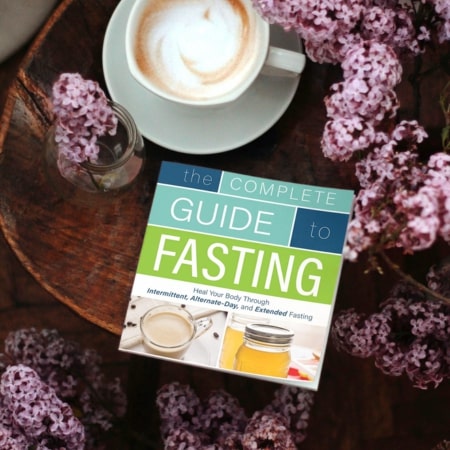
Dr. Jason Fung’s guide is top on our list. It breaks down the science behind intermittent fasting. Fung’s approach is holistic, fact-based, and easily digestible. The book also includes practical advice and fasting schedules, offering a comprehensive guide for beginners and experts alike.
2. “Fast. Feast. Repeat.” by Gin Stephens
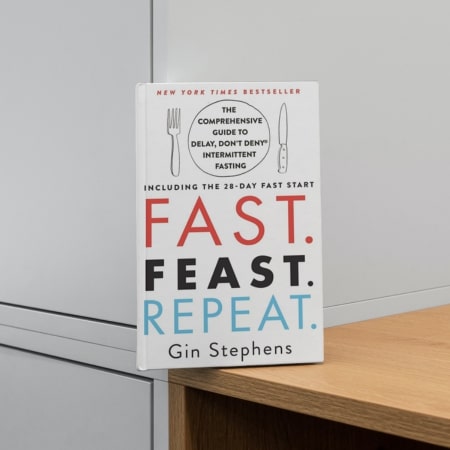
This book is a game changer. Gin Stephens, an intermittent fasting guru, gives us an engaging, step-by-step guide. She breaks down the fasting process and provides helpful tips to overcome common challenges. It’s among the best books on intermittent fasting for its practicality and reader-friendly approach.
3. “The Obesity Code” by Dr. Jason Fung
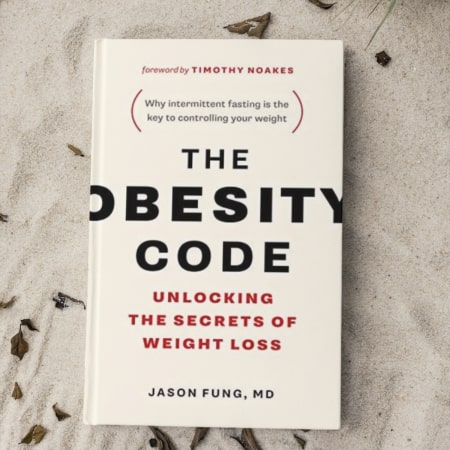
Yes, Fung makes our list again! “The Obesity Code” uncovers the secret link between insulin levels and weight gain. Fung’s insightful analysis of the root cause of obesity makes this a must-read for anyone on a weight loss journey.
4. “Delay, Don’t Deny” by Gin Stephens

“Delay, Don’t Deny” emphasizes the importance of ‘when’ over ‘what’ in eating. Stephens explains why it’s not just about reducing calories, but also about timing meals. This book is a great companion for those keen on mastering the intermittent fasting lifestyle.
5. “The FastDiet” by Dr. Michael Mosley and Mimi Spencer
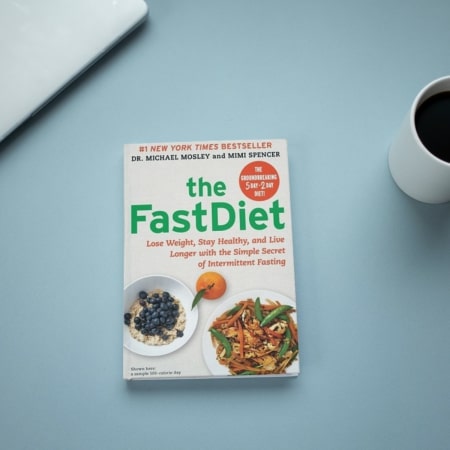
“The FastDiet” popularized the 5:2 intermittent fasting method. The authors offer an easy-to-follow plan that involves eating normally for five days and fasting for two. This book is perfect for those seeking a flexible and sustainable fasting plan.
6. “Life in the Fasting Lane” by Dr. Jason Fung, Eve Mayer, and Megan Ramos
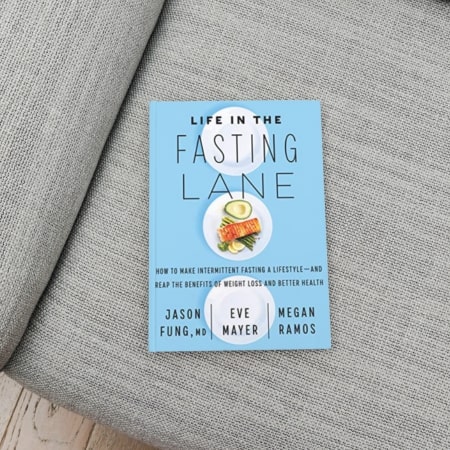
This book delivers a powerful message about the health benefits of intermittent fasting. Co-authored by three experts, it combines scientific research with personal experiences. It’s a great guide for those looking to improve their health beyond weight loss.
7. “Eat Stop Eat” by Brad Pilon
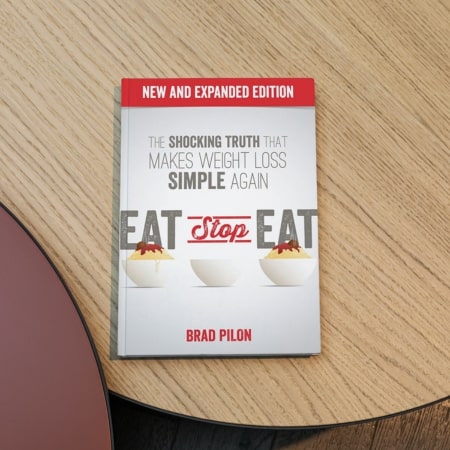
Pilon’s book provides a simple, straightforward approach to intermittent fasting. It debunks common myths and offers valuable insights into the practicality of fasting. “Eat Stop Eat” is among the best books on intermittent fasting for its simplicity and effectiveness.
Conlusion
Remember, the effectiveness of intermittent fasting is not just limited to weight loss; it also plays a significant role in improving overall health and wellness. However, it is important to consult with a healthcare professional before starting any new diet regimen, including intermittent fasting.
These books are not only valuable resources for those who are new to intermittent fasting, but they also provide insight and inspiration for those who have been practicing it for some time. Whether you’re looking for scientific explanations, seeking practical advice, or craving for success stories, these books have you covered. Happy reading and here’s to your weight loss success in 2023 with the help of intermittent fasting!
FAQ

Q: What is intermittent fasting?
Intermittent fasting is an eating pattern that alternates between periods of eating and fasting. It focuses on when to eat, rather than what to eat.
Q: What are the different types of intermittent fasting?
Some common types include the 16/8 method, the 5:2 diet, and the Eat-Stop-Eat method. The numbers reflect the hours of fasting versus non-fasting or the days of normal eating versus low-calorie intake.
Q: Is intermittent fasting effective for weight loss?
Yes, research shows intermittent fasting can help you lose weight and fat without having to consciously restrict calories.
Q: Does intermittent fasting have other health benefits?
Yes, besides weight loss, it can improve metabolic health, reduce inflammation, and may even extend lifespan.
Q: Who should avoid intermittent fasting?
Pregnant women, individuals with a history of eating disorders, and those with certain medical conditions should consult a healthcare professional before starting intermittent fasting.
Q: Can I drink liquids during the fasting period?
Yes, water, coffee, and other non-caloric beverages are fine during the fasting period, as they don’t break the fast.
Q: Will I lose muscle mass during intermittent fasting?
Studies suggest intermittent fasting may be less likely to cause muscle loss compared to continuous calorie restriction.
Q: Does intermittent fasting slow down metabolism?
No, short to medium-term fasting has been shown to increase metabolic rate, helping you burn more calories.
Q: Can I exercise while fasting?
Yes, you can exercise while fasting. Some people even recommend taking workouts in a fasted state to increase fat burning.
Q: Will intermittent fasting cause nutrient deficiencies?
As long as you’re eating nutrient-dense foods during your eating periods, intermittent fasting shouldn’t cause nutrient deficiencies.
Q: How do these best books on intermittent fasting help with weight loss?
A: They offer practical advice, scientific explanations, and success stories, aiding readers in achieving weight loss success.
Q: Are these books only about weight loss?
A: No, they also discuss overall health improvement and potential reduction in the risk of certain diseases.
Q: Can I find recipes in these books?
A: Some books, like “The 5:2 Diet Book,” include healthy and delicious recipes suitable for fasting days.
Q: Who should not practice intermittent fasting?
A: People with certain medical conditions, pregnant or nursing women, and those with a history of eating disorders should consult healthcare professionals before starting.
Q: Are these books based on scientific research?
A: Yes, all these books are grounded in scientific research, providing reliable and up-to-date information.
Q: Can you briefly describe intermittent fasting?
A: Intermittent fasting is an eating pattern cycling between periods of eating and fasting. It focuses on when to eat, not what to eat.
Q: Are these best books on intermittent fasting suitable for beginners?
A: Yes, all these books provide comprehensive introductions, making them suitable for beginners.

